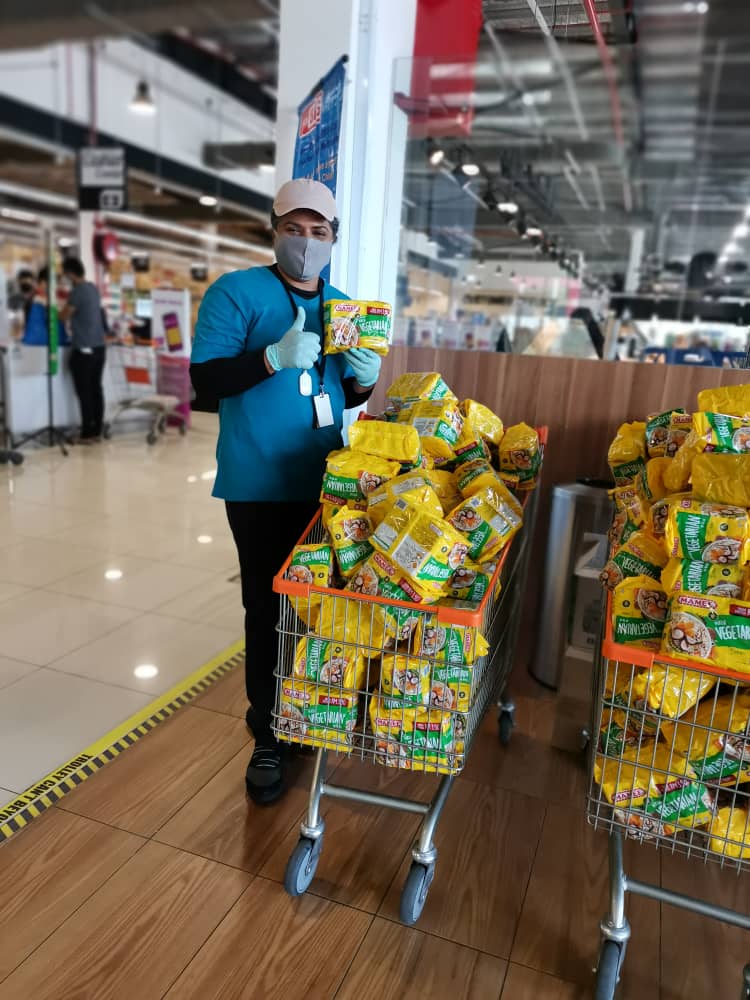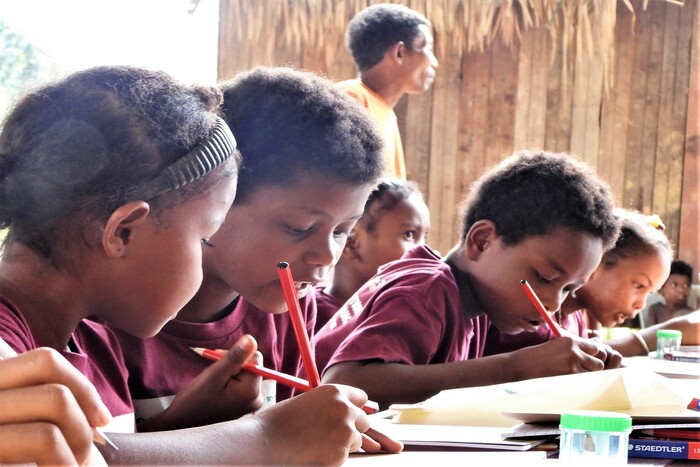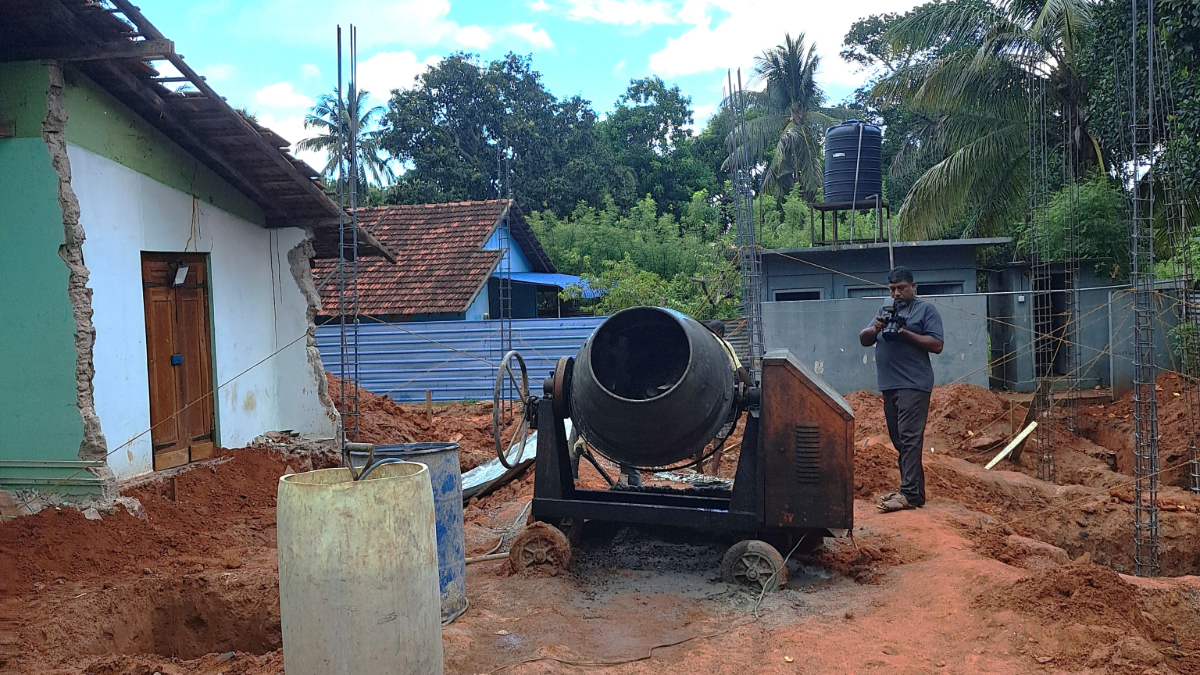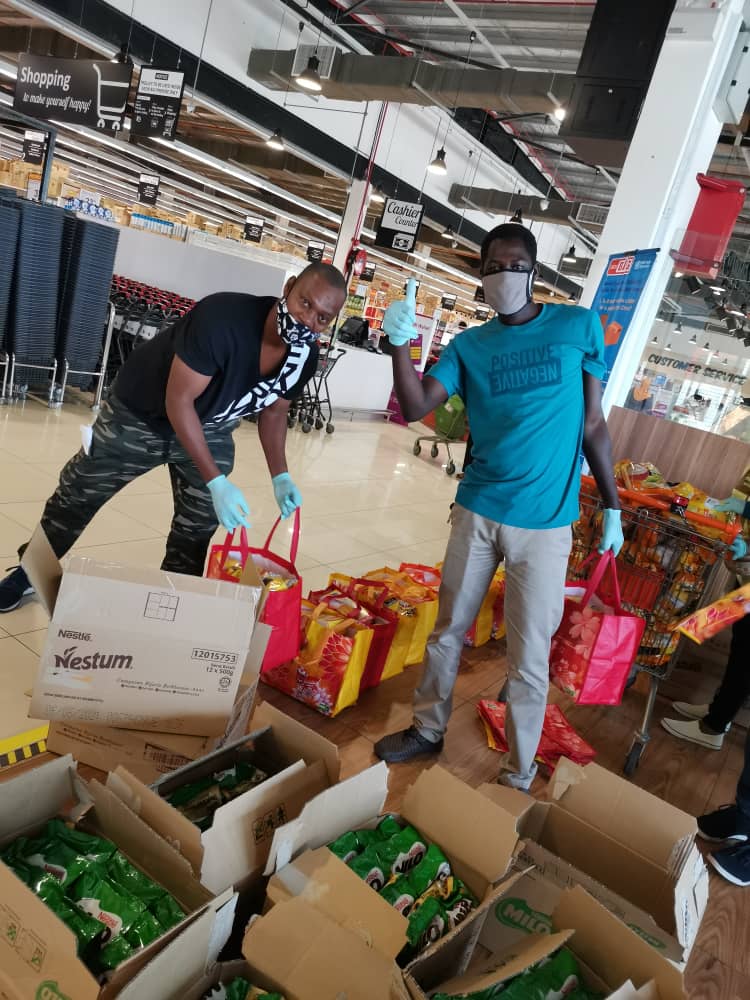 MSRI’s Operations & Education Programme manager Andrea Fernandez said although there were 500 refugees registered with them, they had to choose the 100 most vulnerable.
MSRI’s Operations & Education Programme manager Andrea Fernandez said although there were 500 refugees registered with them, they had to choose the 100 most vulnerable.
“Many of those we met were happy to see us and wanted to talk as they had not been in contact with people for a long time. However, we had to maintain social distancing and limit our conversations as we had a time schedule to follow and deliver all the food items,” she said.“One of the things I learned from this is that many people may be hungry and need food, but they are actually hungrier for human contact and touch,” she added. Zainab, 35, has four dependents including children. Her husband works abroad to provide for their family. She was very worried about providing for her children during this time as they had next to nothing in the house. She says the groceries and food items came at just the right time. “May Allah reward you abundantly,” she told the volunteers as the food items were given to her.
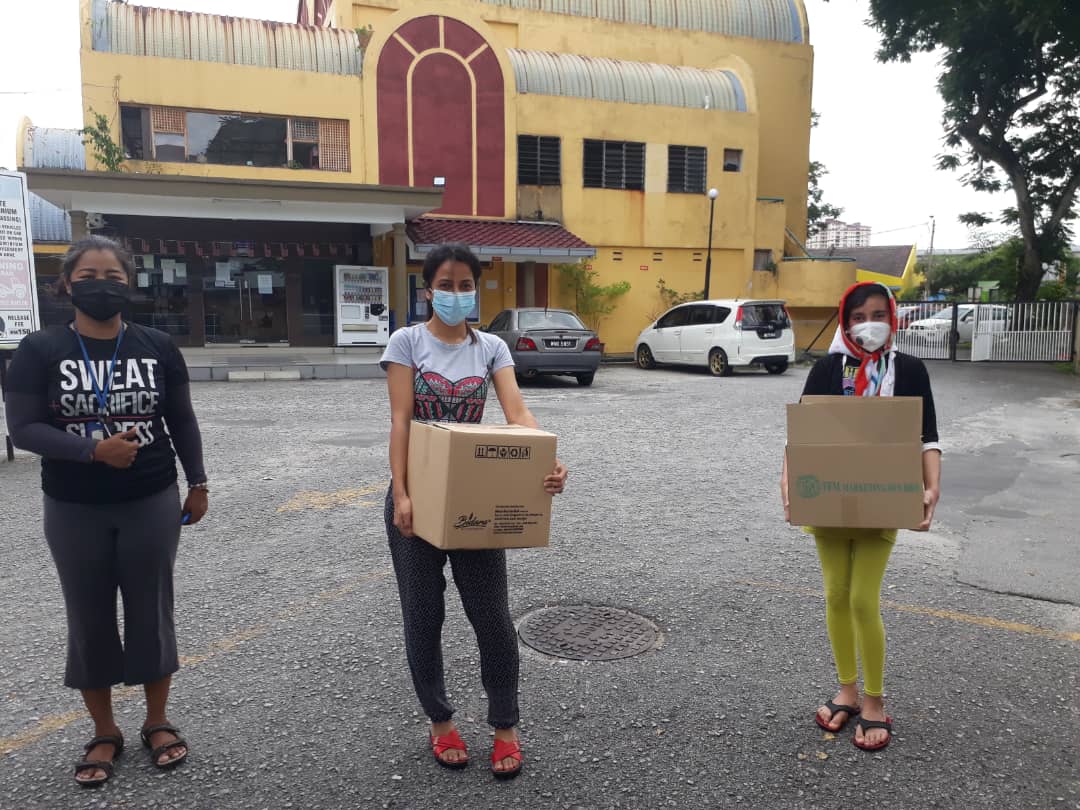 Salman, 24 stays with his sister and aunt and was working as a labourer as and when work was available. With the shutdown, there is no more work, and hence no income.
“Since everything is closed, we have kept the aid items aside and are intending to use it carefully and wisely to last us the entire month of Ramadan,” he says.
Salman, 24 stays with his sister and aunt and was working as a labourer as and when work was available. With the shutdown, there is no more work, and hence no income.
“Since everything is closed, we have kept the aid items aside and are intending to use it carefully and wisely to last us the entire month of Ramadan,” he says.

